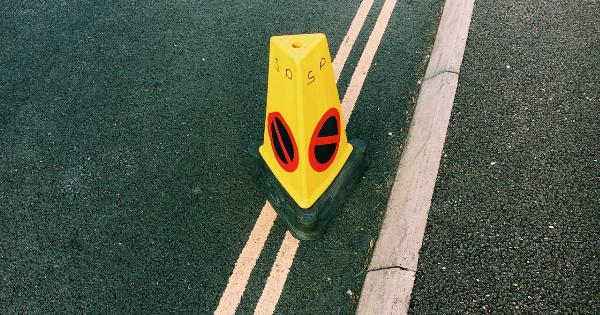Dehydration occurs when your body loses more fluids than it takes in, causing an imbalance in your body’s electrolytes.
It can occur due to various reasons like strenuous exercise, diarrhea, vomiting, fever, excessive sweating, and not drinking enough fluid. Dehydration can lead to serious health problems, especially if left untreated. So, it is crucial to be aware of the signs of dehydration to watch out for. Below are some common signs of dehydration:.
1. Dark-colored urine
The color of your urine can indicate how well hydrated you are. If you are well hydrated, your urine should be a pale yellow color.
However, if you are dehydrated, your urine may become darker in color, which can be an indication that you need to drink more fluids.
2. Dry mouth and throat
One of the first signs of dehydration is a dry mouth and throat. When you are dehydrated, your body reduces the production of saliva, causing your mouth to feel dry. You may also feel thirsty, and your tongue may feel dry and sticky.
3. Fatigue and weakness
Dehydration can cause fatigue and weakness in your body. As your body loses fluids, it can lead to a decrease in blood volume and drop in blood pressure, causing fatigue and weakness.
4. Headache or dizziness
Dehydration can cause headaches and dizziness, as the drop in fluid level reduces the amount of oxygen and blood flow to your brain. This can cause headaches, dizziness, and lightheadedness.
5. Dry skin and lips
When you are dehydrated, your body conserves water by reducing the amount of fluids supplied to your skin, leading to dry skin and chapped lips. Drinking enough fluids can help keep your skin hydrated and prevent it from becoming dry.
6. Muscle cramps
Dehydration can also cause muscle cramps and spasms, especially in the legs and arms. Lack of fluids can result in an electrolyte imbalance, which can lead to cramps in your muscles.
7. Rapid heartbeat or breathing
Dehydration puts a strain on your heart and lungs, as they must work harder to circulate the reduced blood flow and oxygen in your body. This can lead to a rapid heartbeat or breathing, as your body tries to compensate for the fluid loss.
8. Sunken eyes and cheeks
One of the physical signs of dehydration is sunken eyes and cheeks. Your body tries to conserve fluids by reducing the amount of fluid supplied to your eyes and cheeks, causing them to appear sunken.
9. Reduced urine output
When you are dehydrated, your kidneys try to conserve water by producing less urine. So, if you notice that you are producing less urine than usual, it could be a sign that you’re becoming dehydrated.
10. Confusion or irritability
Dehydration can also affect your cognitive function, leading to confusion or irritability.
Your brain relies on fluids to function correctly, so if there is a drop in blood flow and oxygen to your brain, it can lead to a change in your mood or behavior.
If you experience any of these signs of dehydration, it is essential to drink plenty of fluids to prevent severe dehydration that can lead to shock, seizure, or even death. Also, if your symptoms persist, consider seeking medical attention.































